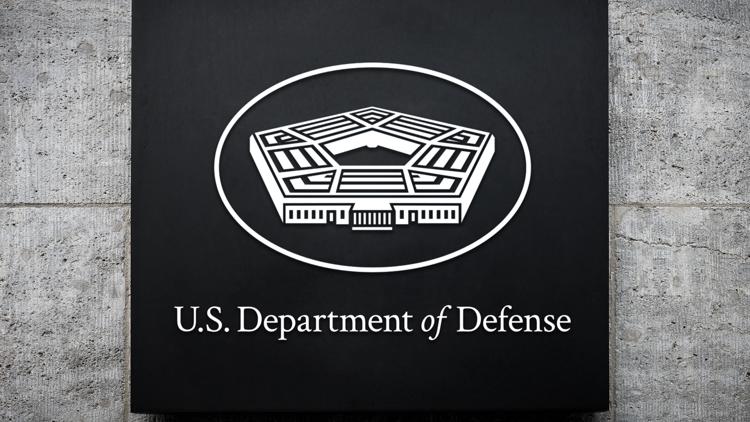In a recent interview with Fox News, host Bret Baier and Democratic presidential nominee Vice President Kamala Harris talked about former President Donald Trump, suggesting he would turn the United States military on Americans who he’s referred to as an “enemy from within.”
“He has repeated it many times. You and I both know that he has talked about turning the American military on the American people,” Harris told Baier.
In the days after Harris’ interview, some people online, including former independent presidential candidate Robert F. Kennedy Jr., have claimed a new Biden-Harris administration policy actually authorizes the military to use lethal force on civilians.
“...Biden/Harris have just pushed through DoD Directive 5240.01 giving the Pentagon power — for the first time in history — to use lethal force to kill Americans on U.S. soil who protest government policies. If you want to understand a politician, the words from her mouth have little relevance. Look at her feet,” Kennedy wrote in a viral post on X.
Some of the posts have also implied that the timing of the newly issued directive is tied to the upcoming presidential election.
Multiple readers emailed and texted VERIFY asking us to look into these claims.
THE QUESTION
Does a new Department of Defense directive authorize the military to use lethal force on civilians?
THE SOURCES
- Department of Defense Directive 5240.01
- Department of Defense Directive 3025.18
- Department of Defense Directive 5210.56
- Sue Gough, a Department of Defense spokesperson
- Just Security article written by Joseph Nunn and Elizabeth Goitein, two national security experts with the Brennan Center for Justice’s Liberty and National Security Program
THE ANSWER
No, a new Department of Defense directive does not authorize the military to use lethal force on civilians.
WHAT WE FOUND
Department of Defense Directive 5240.01 (DoDD 5240.01), which online posts reference, was updated in late September. But contrary to viral claims, the updated directive does not give the military power to use lethal force against civilians, according to a DOD spokesperson and two national security experts.
DoDD 5240.01, which was updated and reissued on Sept. 27, 2024, lays out policies for instances when Department of Defense intelligence components, such as the National Security Agency (NSA), may offer assistance to law enforcement agencies.
But the directive does not make any changes to existing federal law about the military participating in law enforcement and its requirements aren’t new.
“The provisions in DoDD 5240.01 are not new, and do not authorize the Secretary of Defense to use lethal force against U.S. citizens, contrary to rumors and rhetoric circulating on social media,” Sue Gough, a spokesperson for the Department of Defense, told VERIFY.
Joseph Nunn and Elizabeth Goitein, two national security experts with the Brennan Center for Justice, agree.
The updated directive does not “reflect any change in DOD policy,” and it doesn’t provide any “new authority to deploy the military domestically or to use lethal force in such deployments,” they wrote in an article for Just Security, which was published on Friday, Oct. 25.
Department of Defense directives are not laws or executive orders – they are policy statements. In other words, these directives can’t make something legal if it isn’t authorized under federal law or by the Constitution, Nunn and Goitein explained.
Existing federal law called the Posse Comitatus Act “bars federal military forces from participating in law enforcement unless doing so is expressly authorized by Congress,” according to Nunn and Goitein. The directive can’t make any changes to this law.
What the updated DOD directive says about lethal force
Many of the false online claims refer to the newly added paragraph 3.3.a.(2)(c) of DoDD 5240.01. But the language doesn’t authorize the military to use lethal force against civilians, as posts claim.
That section of the directive says the Secretary of Defense needs to give their approval before military intelligence components offer certain kinds of assistance to law enforcement agencies, including:
“Assistance in responding with assets with potential for lethality, or any situation in which it is reasonably foreseeable that providing the requested assistance may involve the use of force that is likely to result in lethal force, including death or serious bodily injury. It also includes all support to civilian law enforcement officials in situations where a confrontation between civilian law enforcement and civilian individuals or groups is reasonably anticipated. Such use of force must be in accordance with DoDD 5210.56, potentially as further restricted based on the specifics of the requested support.”
This is also not a change to DOD policy.
That’s because the language isn’t new to DOD directives. Some of the language added to DoDD 5240.01 already appears in a more general directive – DoDD 3025.18 – and has been included since at least 2018, according to Nunn and Goitein.
The DOD’s policy regarding the use of lethal force, which is addressed in another directive that was last updated in 2020, also hasn’t changed, Gough confirmed.
DoDD 5210.56, which is titled “Arming and the Use of Force,” says the use of deadly force “is justified only when there is a reasonable belief that the subject of such force poses an imminent threat of death or serious bodily harm to a person,” or under other other circumstances outlined in the directive. Those include protecting assets that are vital to national security, inherently dangerous property and national critical infrastructure.
“If less than deadly force could reasonably be expected to accomplish the same result without unreasonably increasing the danger to armed DOD personnel or to others, then it should be used,” the directive says.
Update to DoDD 5240.01 was not tied to upcoming election
Gough also denied claims that the timing of an update to DoDD 5240.01 was intentional, saying “the release was in no way timed to the election or any other event.”
“Reissuing 5240.01 was part of normal business of the Department to periodically update guidance and policy,” Gough added.
Nunn and Goitein also said “there is nothing suspicious about the timing” of the updated directive.
“To the contrary, as the Biden administration comes to a close, agencies will increasingly be focused on tying up loose ends such as issuing policy updates of this nature,” they said.













